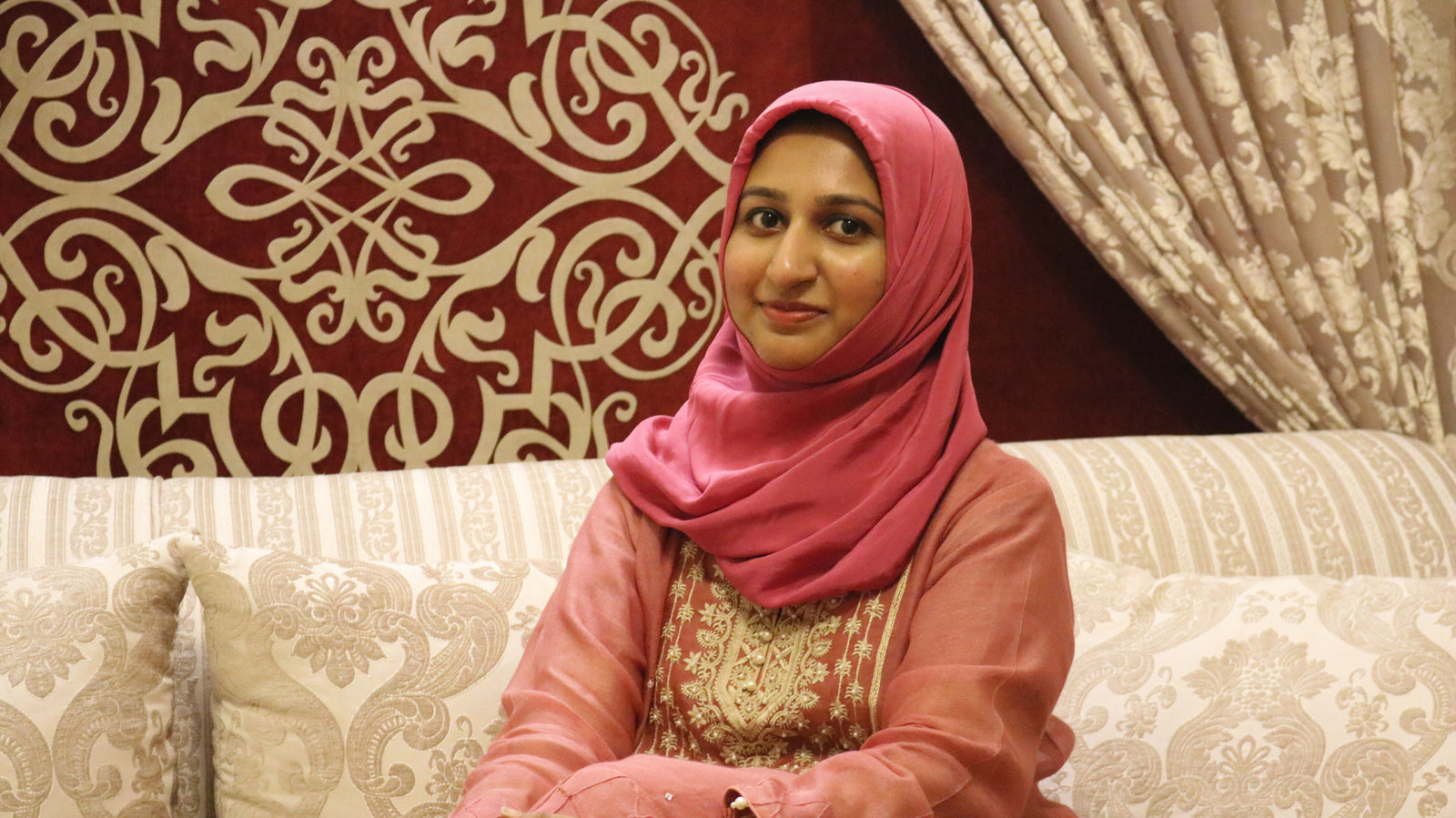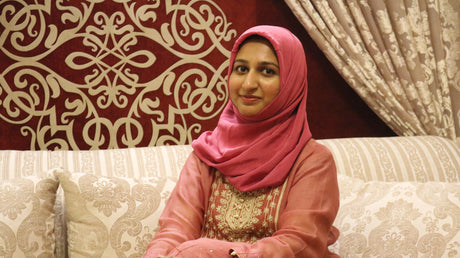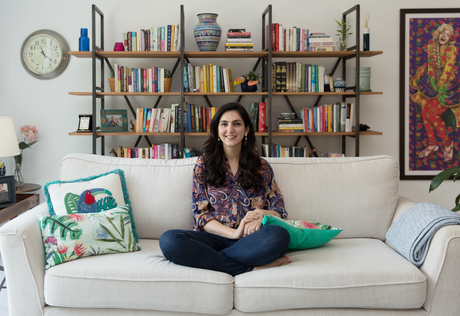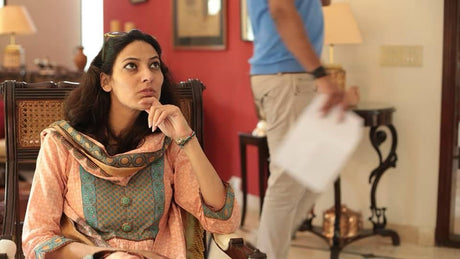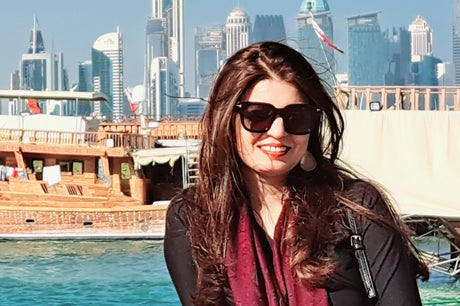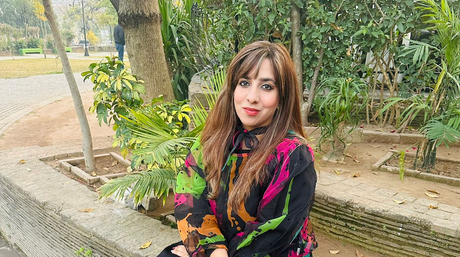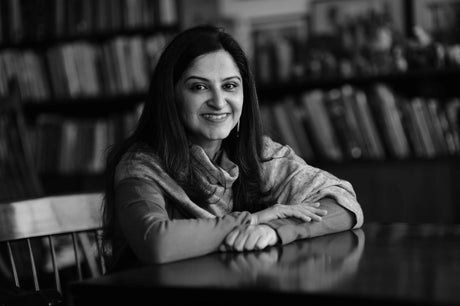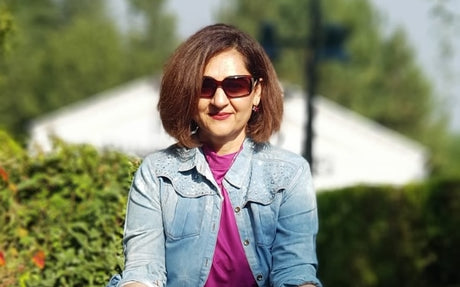In Rawalpindi, Rubab Haider's story is a tapestry of diverse experiences and cultural influences. Born in 1992, her journey reflects a steadfast commitment to social change and advocacy, characterized by transformative milestones that have shaped her into the inspiring entrepreneur she is today.
Rubab's academic journey began with a degree in Defense and Diplomatic Studies from Fatimah Jinnah Women University, setting the stage for her future endeavors. However, it was her Master's in Roads to Democracy from the University of Siegen in Germany that truly ignited her passion for making a difference.
Beyond academia, Rubab's commitment to advocacy and social change is evident in her active involvement in various extracurricular activities. From organizing university festivals to participating in sports and serving on the elected council, she has always been at the forefront of creating positive change.
A defining moment in Rubab's advocacy journey was the initiation of a groundbreaking series on women's rights, featuring all-female guests, on the web-based channel Jazba TV. This endeavor exemplified her dedication to championing gender equality and empowerment, a cause she continues to passionately pursue.

Rubab's return to Pakistan in 2021 marked the realization of her dream project on women's empowerment - the establishment of Hunar Madaar, a community center dedicated to uplifting women. Inspired by her roots in the villages of Chak Amral and Rajoa Sadat in Chiniot, where her paternal grandparents hailed from, Hunar Madaar stands as a beacon of hope and empowerment in the same village of Rajoa Sadat.
Rubab's journey is a testament to her resilience, passion, and unwavering commitment to making a positive impact on the lives of women in her community and beyond. As she continues to blaze a trail of empowerment and impact, Rubab Haider's story serves as an inspiration to us all.
This new series of interviews by Nani aims to shed the spotlight on amazing Pakistani women who share their insights about work, motherhood, and more, providing a platform for their stories to inspire and empower.
Can you share the story behind the creation of the women's community center in Rajoa and your personal motivation to initiate such a project?
During my childhood, I witnessed the prevalence of the feudal system, which was largely male-dominated. This system tended to overlook numerous issues faced by women, subjecting them to discrimination and disrespect. For instance, pregnant women were compelled to engage in strenuous labor, and women, in general, were burdened with the dual responsibility of providing for the household while also serving men hot meals. Their decisions were often dictated by local landlords, leaving them without a safe space and agency.
Observing these injustices fueled a combination of anger and passion within me, compelling me to initiate a project aimed at bringing about sustainable change in the lives of women. It also gave me strength to be daring enough to go against the norms. My goal was to ensure that women are treated as respected human beings, free from the constraints of an oppressive system. This was the reason, I started Hunar Madaar to provide a safe space to community women.

What specific challenges did you observe in Rajoa Sadat that led you to focus on supporting and empowering women through skills and job opportunities?
In the village of Rajoa Sadat, where the serenity of the landscape belies the challenges faced by its residents, my commitment to empowering women through skills and job opportunities is deeply rooted in the multifaceted hurdles prevalent in the community. Economic violence and limited economic opportunities exacerbate the vulnerability of women, making them susceptible to exploitation and dependency. Witnessing this silent struggle fueled my determination to create pathways for financial independence and resilience.
Health and nutrition are critical concerns in Rajoa Sadat, with limited access to healthcare facilities and information leading to adverse effects on women and children's well-being. Poor nutrition hampers both physical health and cognitive development, perpetuating a cycle of vulnerability. Understanding the interconnectedness of health, economic stability, and empowerment, I saw an opportunity to address these issues collectively.
Empowering women through tailored skill development programs not only equips them with tools to break free from economic constraints but also fosters independence and resilience against economic violence. Additionally, initiatives promoting health awareness and facilitating access to nutritious resources aim to uplift the overall well-being of women and the community. This holistic approach aims to transform the narrative of Rajoa Sadat, turning challenges into catalysts for positive change and creating a more resilient and flourishing community.
The collaboration with Sifaal on organic jaggery, broccoli, salad, and other products is intriguing. What inspired this collaboration, and how do you envision it positively impacting the community?
The collaboration with Sifaal on organic jaggery, broccoli, salad, and other products stems from a vision to create a symbiotic relationship that not only benefits the local community but also aligns with the ethos of sustainable agriculture and economic empowerment. The inspiration behind this collaboration is rooted in addressing several challenges faced by the community, including limited economic opportunities, a lack of infrastructure for product marketing, and the need for sustainable agricultural practices. Recognizing Sifaal's role as a private company owned by a local landlord, we saw an opportunity to synergize our efforts for mutual benefit.
The first aspect of this collaboration focuses on leveraging Sifaal's expertise and resources in agriculture. By partnering with them on the cultivation and production of organic jaggery, broccoli, salad, and other products, we harness the knowledge and infrastructure already in place. This not only ensures the quality and organic nature of the products but also contributes to sustainable farming practices, promoting environmental stewardship within the community.
The collaboration extends beyond agriculture to include aspects such as packing, marketing, and selling of these products. Hunar Madaar plays a pivotal role in adding value to the agricultural output by offering skills in packaging and marketing. This synergy benefits both parties, providing Sifaal with access to a wider market and enhancing the economic prospects of the community members involved in the collaborative venture.
Envisioning the positive impact on the community, we see this collaboration as a catalyst for economic growth and empowerment. By introducing high-quality, locally-produced organic products to the market, we not only elevate the community's economic standing but also foster a sense of pride in their agricultural heritage. The collaboration creates job opportunities, particularly for women involved in the packing and marketing processes, contributing to their financial independence. Furthermore, the emphasis on organic farming practices promotes environmental sustainability and health-conscious consumption. As the community gains recognition for its premium organic products, it establishes a positive feedback loop, attracting more opportunities for growth and collaboration.
In essence, the collaboration with Sifaal is a testament to the transformative power of partnerships that bridge gaps, empower communities, and contribute to a sustainable and thriving local economy. Through this venture, we aim to build a model that not only benefits the present generation but also paves the way for a more prosperous and resilient future for the community.

The concept of a women's community center supporting agricultural products is innovative. Can you share any lessons you've learned so far in navigating the intersection of community development and agriculture?
Certainly, navigating the intersection of community development and agriculture within the context of a women's community center has been a rich learning experience. Here are some key lessons learned:
Empowerment through Skill Diversification: One crucial lesson is the transformative power of diversifying skills within the community. By providing training in agricultural practices, packaging, and marketing, we've empowered women with a diverse skill set. This not only enhances their employability but also fosters a sense of pride and ownership in contributing to the agricultural value chain.
Sustainability through Local Collaboration: Building sustainable agricultural practices requires collaboration with local stakeholders. Our partnership with Sifaal, a local company, taught us the importance of working closely with existing structures. Local collaborations not only enhance the quality of agricultural products but also contribute to the economic ecosystem of the community.
Adaptability in Agricultural Ventures: Agriculture is inherently influenced by environmental factors, and the unpredictability of weather patterns is a significant challenge. Flexibility and adaptability are crucial in navigating the uncertainties of agricultural ventures. Learning to adjust strategies based on seasonal variations and market demands is key to the success of such initiatives.

Market Access and Branding: Creating market access for local agricultural products involves effective branding and marketing strategies. Establishing a recognizable brand for our organic products has taught us the importance of storytelling and connecting consumers with the community's journey. This not only adds value to the products but also contributes to the overall success of the venture.
Community Engagement and Participation: The success of any community development initiative hinges on active community engagement. In the context of agriculture, involving community members in decision-making processes, from crop selection to marketing strategies, ensures a sense of ownership and sustained commitment.
Balancing Traditional Practices with Innovation: Respecting and preserving traditional agricultural practices while embracing innovation is a delicate balance. We've learned that introducing sustainable and organic farming methods can coexist with traditional knowledge, contributing to both ecological well-being and community heritage.
Measuring Impact beyond Economic Metrics: While economic empowerment is a crucial aspect, measuring the broader impact on the community's well-being is equally important. Assessing improvements in social cohesion, women's empowerment, and overall community resilience provides a more comprehensive understanding of the initiative's success.
Building a Resilient Ecosystem: Agriculture is interconnected with various factors, and building a resilient ecosystem involves considering the interdependence of economic, social, and environmental elements. A holistic approach ensures that the community is better equipped to face challenges and capitalize on opportunities.
What kind of training or skills development programs are you providing to the women in Rajoa to empower them for the roles they'll take on in the production and marketing of these organic products?
In Rajoa, our commitment to empowering women goes beyond the boundaries of traditional agricultural roles. We believe in equipping women with a comprehensive skill set that not only enhances their capabilities in farming but also prepares them for active participation in the production and marketing of organic products.
Our training and skills development programs are designed to be holistic, covering various aspects of sustainable and organic farming practices. Women receive in-depth training on crop cultivation, soil health management, pest control methods, and efficient irrigation techniques. This agricultural training not only empowers women to actively engage in the cultivation process but also ensures the success of organic farming initiatives.

Additionally, our programs focus on enhancing women's skills in processing and packaging agricultural products. Women are trained in efficient processing techniques to maintain product quality and freshness. They also learn packaging skills to create visually appealing products that can stand out in the market.
Recognizing the importance of marketing and sales in the success of organic products, our initiatives include training in basic marketing principles and sales strategies. Women learn about branding, customer engagement, and market trends, empowering them to actively participate in the promotion and sale of organic products.
Financial literacy and management are also key components of our programs. Women receive training in financial literacy, budgeting, and basic accounting, enabling them to manage the financial aspects of agricultural production and sales effectively. Moreover, we emphasize the development of soft skills such as teamwork, leadership, and problem-solving. Women participate in workshops aimed at enhancing these skills, creating a collaborative and supportive community environment.
Health and safety practices are another important aspect of our programs. Women are trained in hygiene practices for processing, storage, and handling of agricultural products to ensure the production of safe and quality organic goods.
In today's digital age, technology and digital literacy are essential. Women are introduced to basic technology skills, including online marketing, e-commerce platforms, and social media usage, enabling them to tap into a broader market and stay updated on industry trends.
By combining these elements, our training and skills development programs aim to create well-rounded, empowered women capable of contributing significantly to the production and marketing of organic products. We believe that economic empowerment is not just about financial gain but also about the holistic development of individuals who play key roles in building a thriving and resilient community.

What's your biggest dream?
As a dedicated entrepreneur committed to fostering positive change, my biggest dream is to witness the sustainable transformation of communities through initiatives that intertwine social impact with viable business ventures. I aspire to see the projects I undertake not only thriving economically but also making enduring contributions to the well-being and empowerment of the individuals and communities they serve.
Specifically, envisioning a future where the women's community center and its collaboration with Sifaal in Rajoa Sadat become a model for holistic development is a central part of my dream. I hope to witness a flourishing ecosystem where sustainable agricultural practices empower women, contribute to the economic vitality of the community, and foster a sense of pride and resilience.
Beyond Rajoa Sadat, my dream extends to influencing and inspiring other young entrepreneurs to embark on similar journeys. I aim to contribute to a broader movement where social impact and business success are not seen as mutually exclusive but rather as integral components of ventures that create lasting positive change.
Ultimately, my biggest dream is to play a role in building a world where entrepreneurship becomes a force for good, where businesses thrive not only in financial terms but also in their capacity to uplift communities, empower individuals, and contribute to a more equitable and sustainable future.

